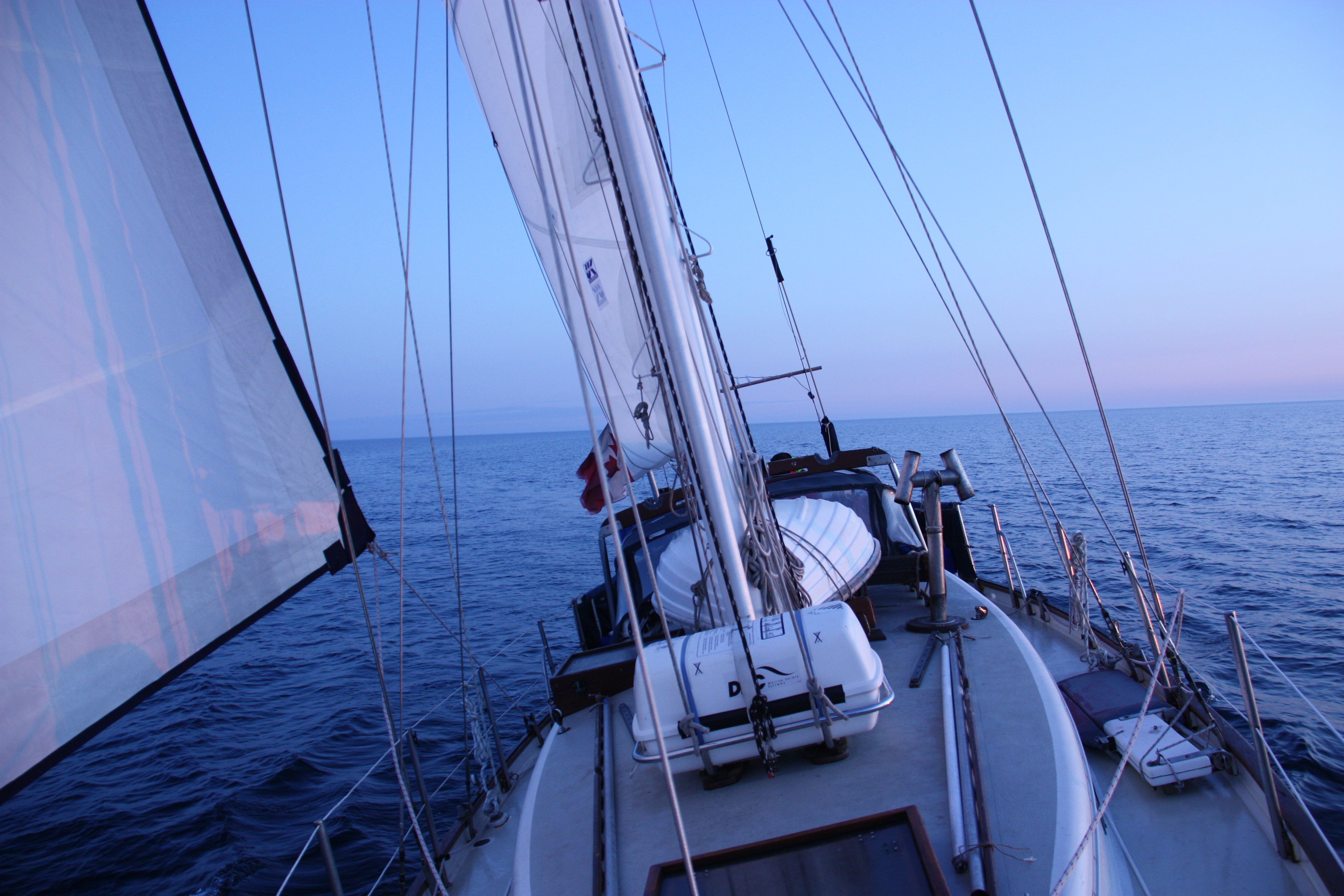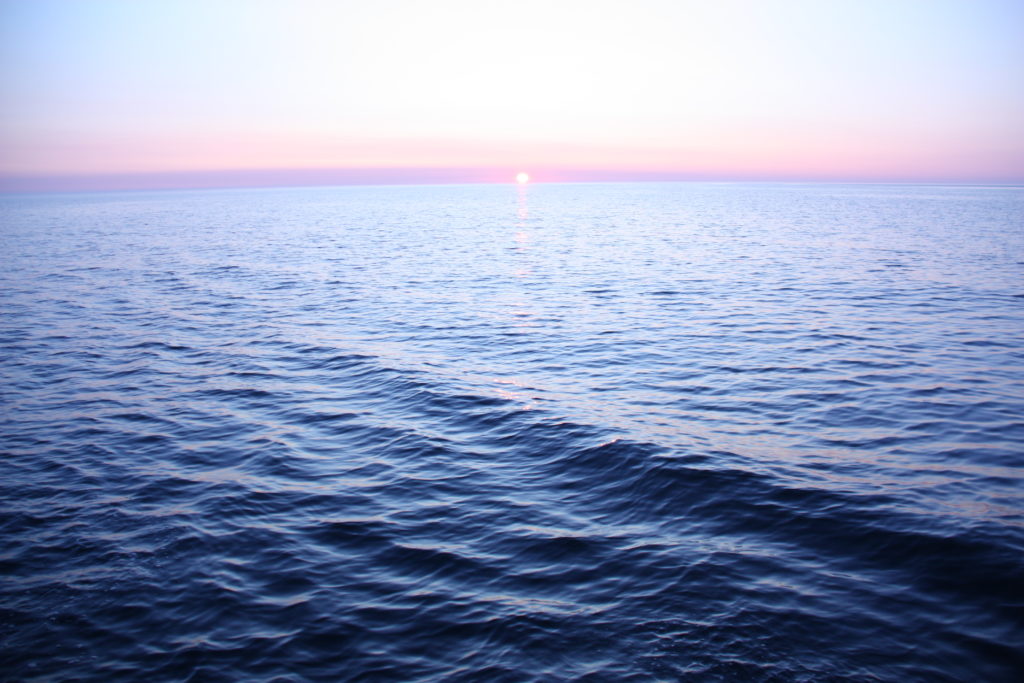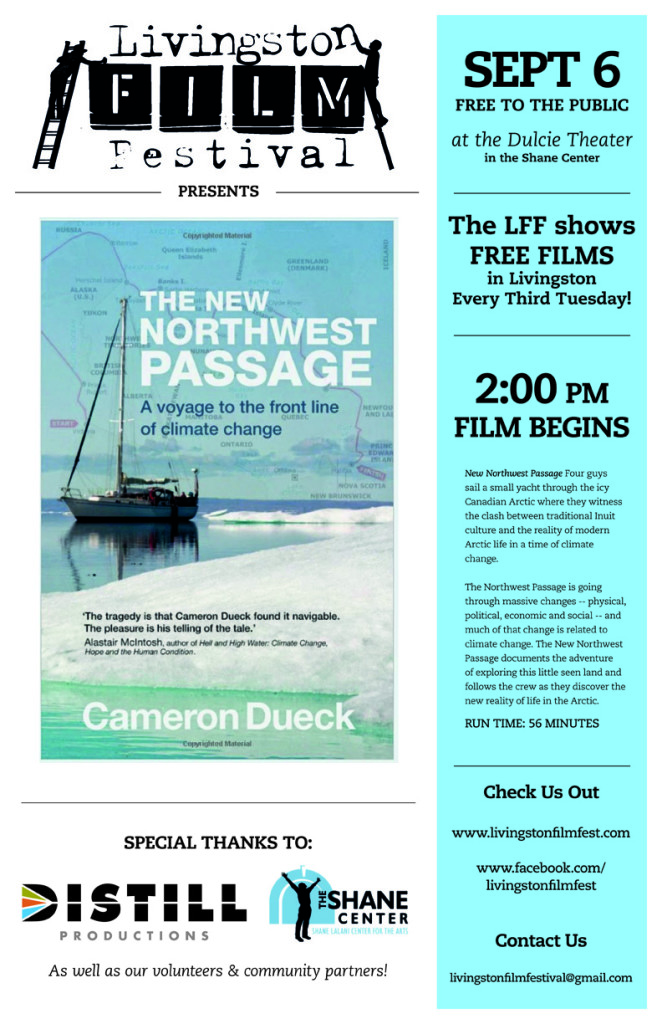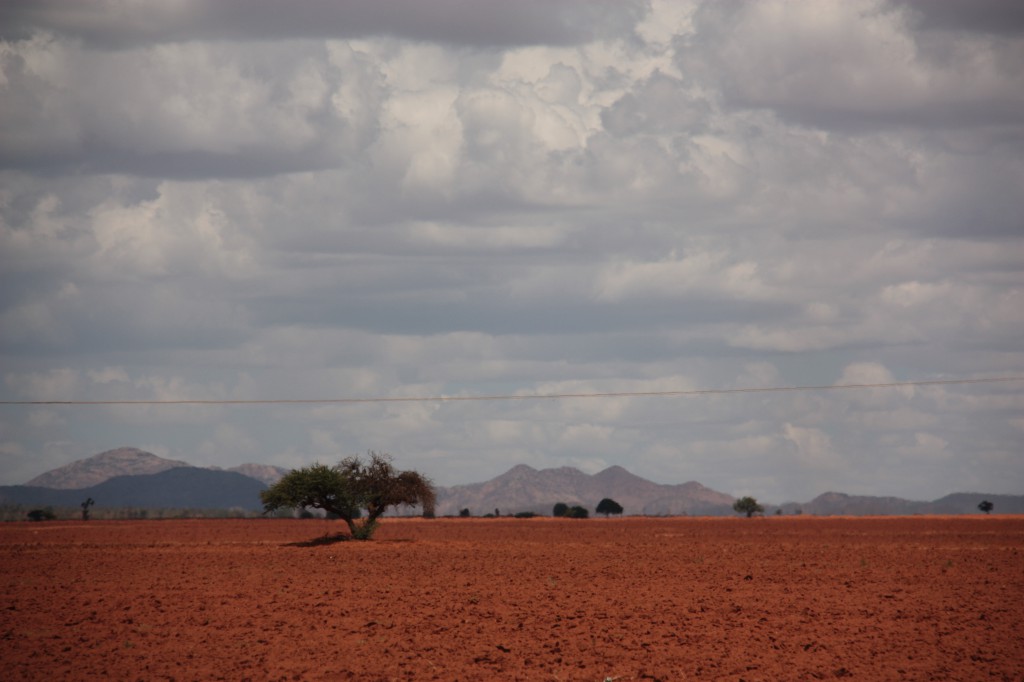One year ago I spent a month as a resident at the Vermont Studio Center, where focused on essay writing. This essay about open ocean sailing was written while at the center, in response to fellow resident’s question.
Read this essay as it appeared in the October 2018 issue of Cruising World Magazine. (pdf download)
It was also performed live at Liars’ League Hong Kong, watch the video here.

Leaving without a fixed destination to arrive to an uncertain welcome. That is why I sail.
It’s the first thing I tell landlubbers who ask, “What is it like, to sail across an ocean in a small boat?”
I could describe the long, loping swell of the deep ocean. The black, moonless nights when the darkness chokes my mind. The curl of blue bioluminescence on a breaking wave. The way a new dawn paints the deck candy floss pink. I could describe the welling of joy when dolphins appear and the secrets we share. But I always begin with the thrill of leaving port.
My port clearance is a precious document, the paper clearing boat and crew of debts and warrants and unpaid bar tabs, free to leave without obligation to say where we will come to rest. A zarpe, outbound clearance, a chit that sets you free. The thrill of limbo when I travel without destination sets my imagination afloat.
I aim my boat into blue waters, seeking wind and way. A month of waves may kiss my keel, then, just miles from port, I gybe away. To another coast, a friendlier nation, somewhere downwind from here. Perhaps I’ll never return, never arrive, betwixt and between, alone at sea. I’ll sail in circles, north to the pole, south to the ice, east and then west until land stands in the way. I could if I wanted to.
When the wind blows hard from the north, we aim for Yemen rather than Oman. When our water runs low we stop in Alaska on our way to Japan. If the sailing is good I’ll pass New Zealand and aim straight for Tahiti.
It isn’t always so, this ticket to eternal noncommittal freedom. If you are port hopping in an island nation, or skipping down a nation’s coast, authorities may ask your destination. But when you raise your sail to cross the Atlantic Ocean, The Arabian Sea, crossing a great expanse to a land far away, you wave farewell and slip away into a world between nations, free of borders, free of customs, duties and right of abode.
Tell me, where else can you wander like this? Which train carries you across a border without two nations, one to exit, one to enter? No airliner takes off without a destination on your boarding pass. Roads that lead to the fronterra cross to the other side.
But not when I go to sea.
“Don’t you get bored, day after day with nothing new to do or see?” the landlubbers ask.
Bored? No. Never. I’m too engrossed in the blue soul of the Indian Ocean, light shot through it like a drift of silver filings. The fear that punches through the bottom of my belly when I look aft and see a grey wave, two, three stories high, with anger in its face. The brilliant flash of metal and blue, streaks of yellow, as a tuna hits the lure. Hand over hand, in it comes, the first fresh food of the voyage.

There’s too much work, helming hour after hour, trimming, changing sails. An inch of ease for a tenth of speed. Or making repairs, jury-rigging when you don’t have spares. Baking bread, cooking dinner, cleaning the head.
My father, an old farmer, came aboard my boat. Never sailed, never cruised, a life spent working hard. He knew nothing of the sea. I was proud, showing him my world. And I waited, wanting a hand on the shoulder saying, son, you’ve done well. Nothing. A silent, critical eye.
“So Dad, what do you think of sailing?”
“Seems like an awful lot of work to go real slow.”
I couldn’t argue. The whole point is to go real slow, to appreciate the subtle shifts of scene. Sometimes I just sit and stare at the sea. Every cloud that passes creates a new blue, new grey, new frothy white cap on the wave. Sometimes there are thrills, a squall that makes us long for home. A whale, a school of dolphins showing us the way. But even without, even if it’s calm, we’re still sailing in a kaleidoscope of shifting shape and light. The setting sun on a clean horizon, the masthead light joining Orion. Darkness so deep it’s hard to stay on your feet. Watching the stars revolve, picking a new one to point the way. Then the dawn. Oh, the dawn. First a tinge of grey, then blues and pinks and tangerine light. The white decks glow, waves and wind that frightened in the night pushed back by the light. If I show you the dawn of open sea you will love me. You’ll know what’s for real.
And then, a few weeks in, someone gets lucky on their watch.
“Land! I think I see land!”
A dark smudge on the horizon turns into mountains, beaches and trees and sand. An excitement takes hold. We clean, we shower, we put the ship in order, we work even harder.
Port of Aden, Dutch Harbour, Port of Jamestown, Pond Inlet, Galle, Salalah. Ports and not marinas, not moored next to superyachts and motor cruisers, but ships of war and coastal barges, the grit and grim of a working harbour. The docks are painted with tar, the water streaked with oil. This is not the country’s best face. But it’s where we arrive, alongside working men and foreign cargos, by the kitchen door. Others, less fortunate I’d say, are disgorged into shiny halls, then a taxi and a hotel in a predictable order. We hoist our yellow flag, a declaration of quarantine, inviting corrupt officials to board.
“Perhaps you have a gift for me? Ah thank you, but my brother, he likes Marlboros too.”
Our first requests are fuel and water and is there a sailmaker in this port? And once she’s secure, the papers signed and bilge inspected, we step ashore.
A cold beer, that day’s newspaper, a meal that’s fresh and green. A walk about town, perhaps a souvenir. And then I begin to wonder, what does the forecast say, when will the wind blow and get us out of here?

 Follow
Follow


